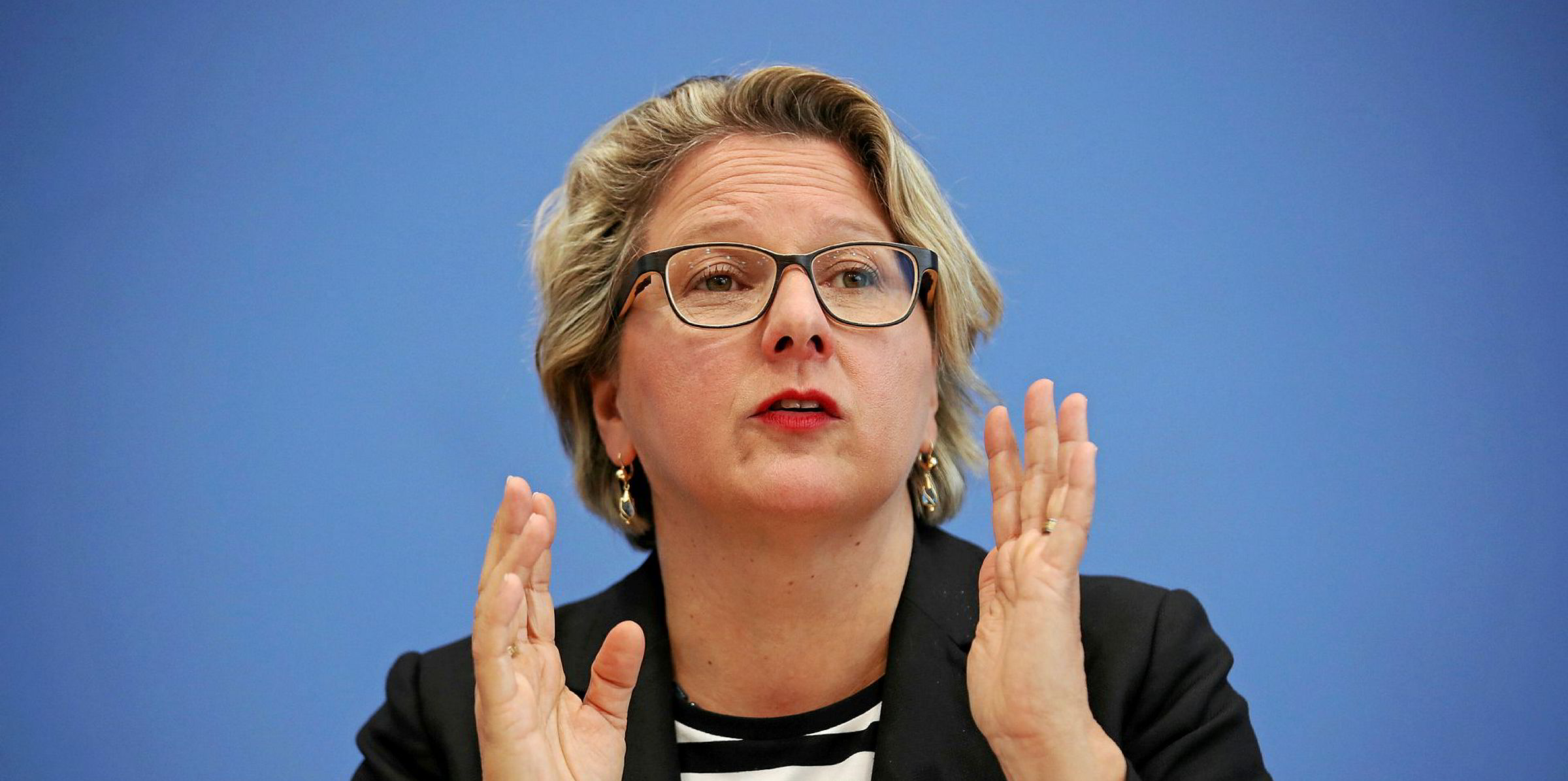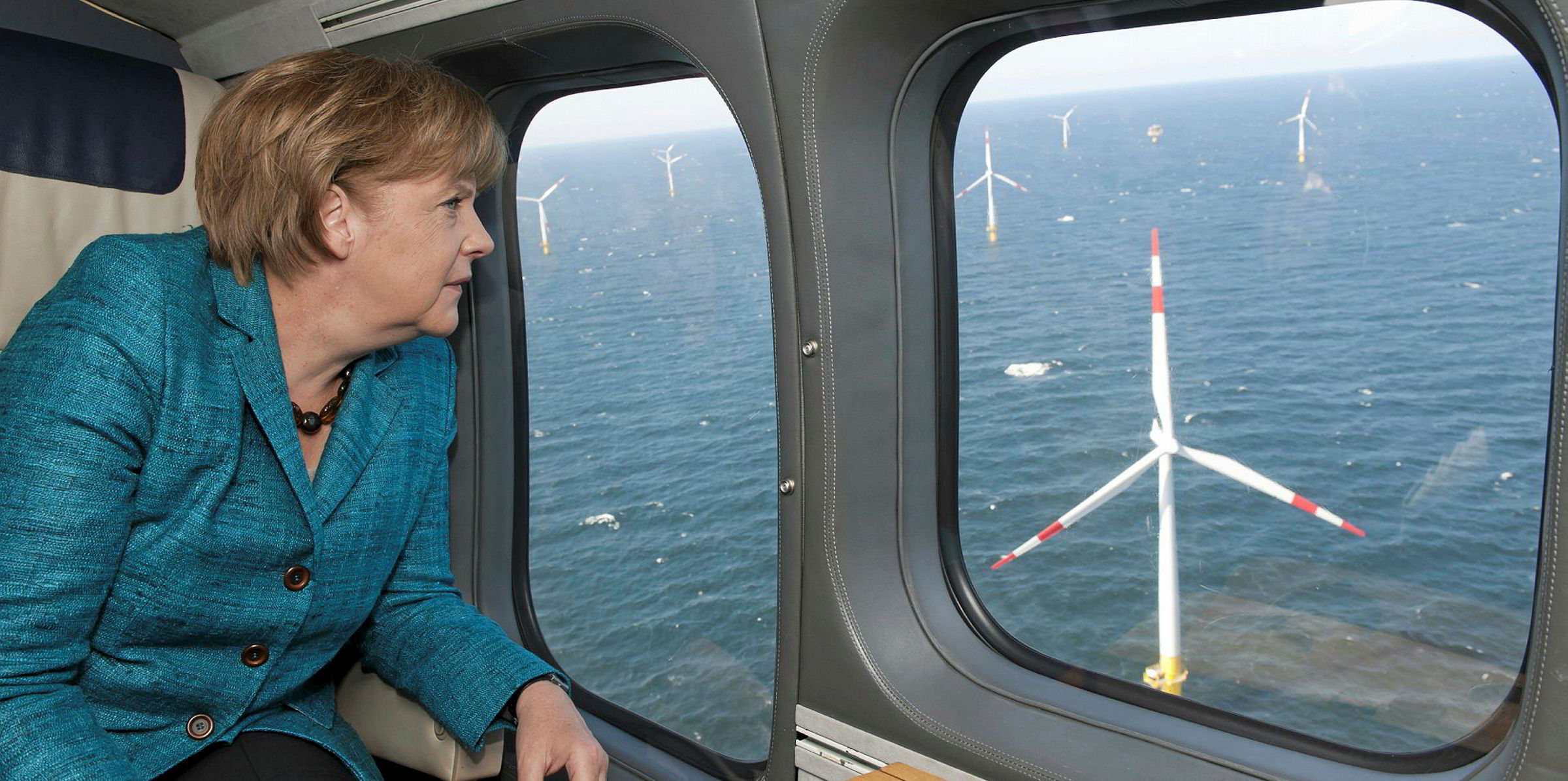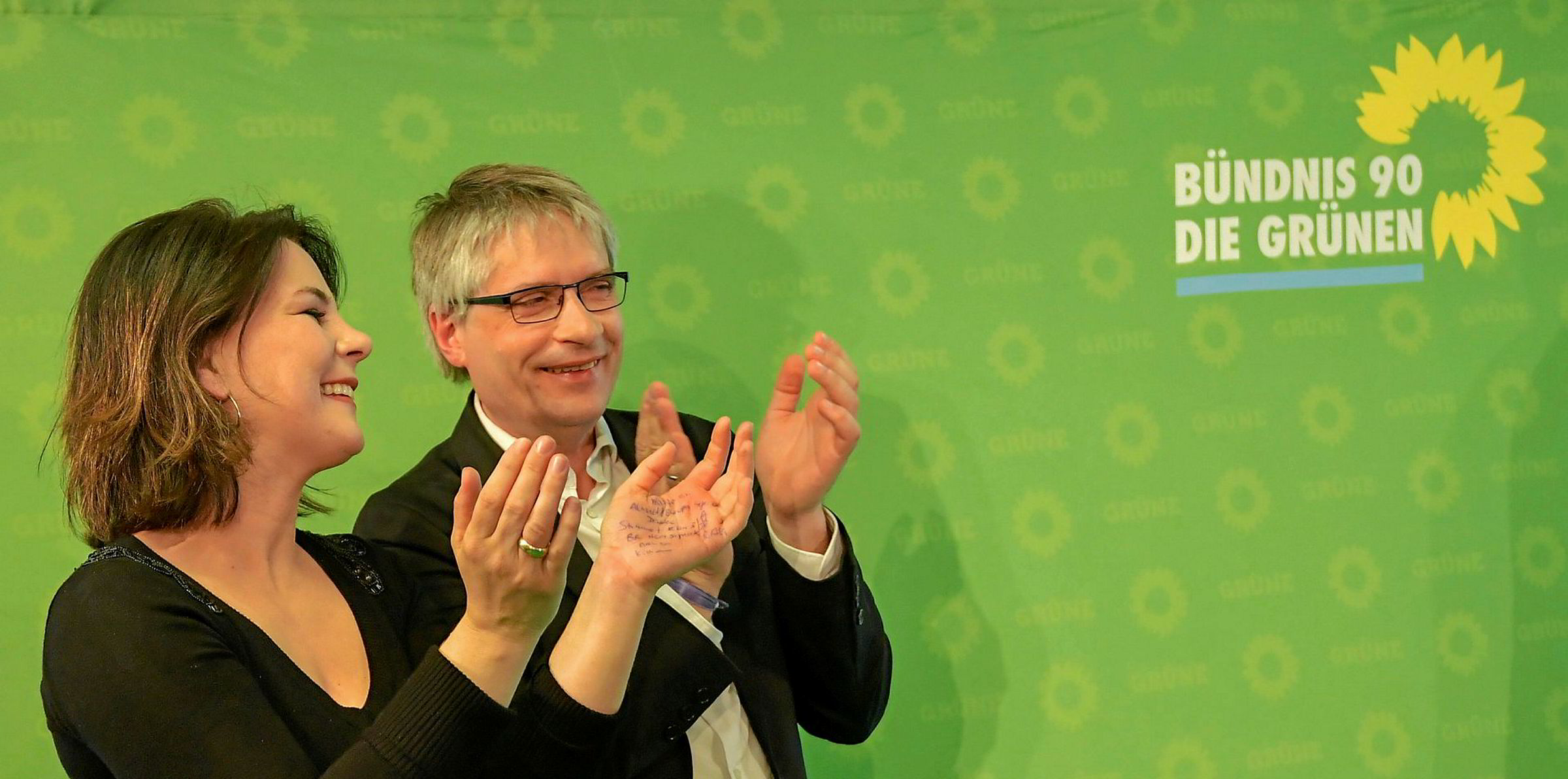Germany needs to add another 100GW in wind and solar power capacity to the 120GW currently installed if it wants to reach its 2030 target of 65% of renewables in its energy mix, Stefan Kapferer, chairman of the federation of energy and water industries (BDEW), said.
Kapferer, speaking at the BDEW’s annual congress, stressed the enormous growth potential for the energy sector through the Energiewende – the country’s transition from nuclear and fossil to renewables. But he also demanded a change in government policies to reach the country’s ambitious goals.
“We need to talk about things like the offshore (wind) cap, the PV cap, about permitting processes and distance rules,” Kapferer said, taking up the central demands of the renewable energy sector.
Germany’s offshore wind sector has long wanted to raise the country’s 2030 target for offshore wind capacity to 20GW from the current 15GW and introduce a 35GW target for 2035. The solar industry demands that the 52GW cap is lifted, after which no further PV capacity will receive support. That cumulated capacity is expected to be reached this year or next in Germany.
Kapferer’s demands came after BDEW president Luise Wolff on Monday told the Süddeutsche Zeitung newspaper that Germany needs to add 10-11GW of wind power alone per year in order to meet its 2030 targets.
Kapferer also spoke out in favour of the introduction of a CO2 price in the heating and transport sectors, and called upon hesitant members of parliament of Chancellor Angela Merkel’s Christian Democratic Union (CDU) to back climate protection measures even if they are expensive.
“Climate protection must be mirrored in the federal budget, otherwise we will not make it [the climate targets],” he said.
German environment minister Svenja Schulze at the event backed the BDEW’s pressure on policy.
“I am glad, that you exert enormous pressure. We need to act faster in the government. Everything is taking too long!” she addressed the BDEW congress, promising that 2019 will be “the year of action, of decisions in climate protection.”
Berlin has become under great pressure in recent months from striking school climate activists and young ‘YouTubers’, who have become increasingly radical in demanding a faster Energiewende, a coal exit and CO2 tax, and at the same time advised not to vote in Merkel’s CDU or Schulze’s Social Democrats (SPD).
The young generation’s climate activism is believed to have contributed to dramatic losses of both parties in the European elections last month.
Schulze, however, stressed that a CO2 levy alone won’t resolve the climate crisis, and urged to reach socially compatible solutions.
A CO2 levy “must not burden people, who already have difficulties. It has to be socially just. It needs to be simple.”
Schulze also demanded lifting the PV support cap, a scrapping of distance rules for onshore wind (in Bavaria), and said she would like to see more vision from her coalition partners.
Wolff little later told journalists that one way to make a CO2 levy socially compatible would be to give back its revenue to citizens that change their behaviour, for example by saving energy.
The BDEW is conducting a study on the issue that will be presented shortly, giving different alternatives.
"A per-capita rebate, as it is already being practised in Switzerland, or a reduction of the electricity price via lowering power taxes, could be an option," Wolff said.
The BDEW also is presenting a concept for the introduction of power-to-gas technology as a means to connect the sector of electricity with industry, heating and transport.



